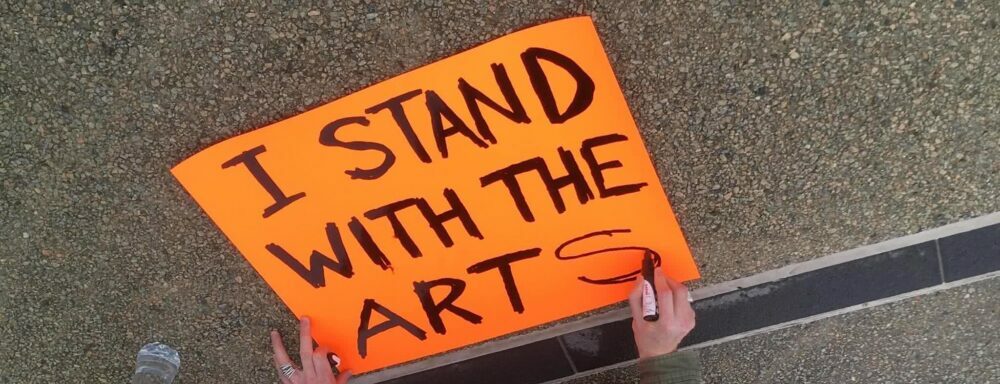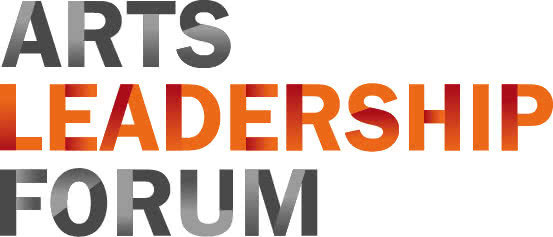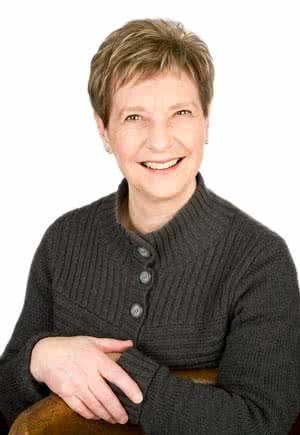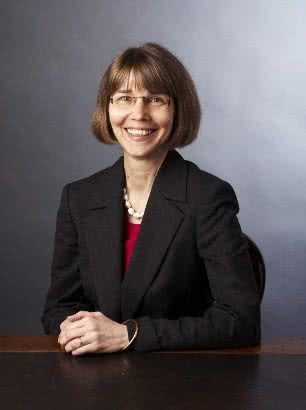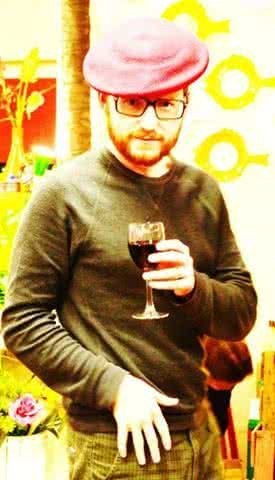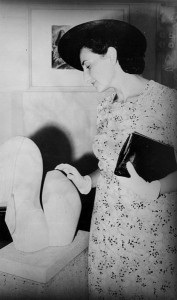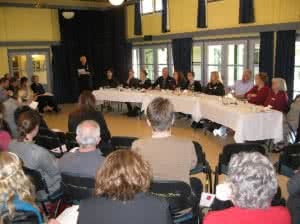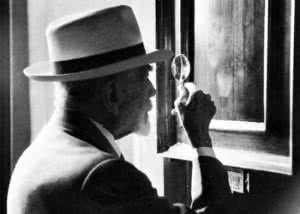On 1 September 2014, together with our event partner the Cultural Facilities Corporation, we’ll be presenting the Arts Leadership Forum, our only forum for the year. Biographical details for our presenters, panelists and MCs are below.
Daniel Ballantyne
Daniel is currently Chief Executive Officer of the Belconnen Arts Centre. He has 20 years’ experience in leadership roles with arts, live performance and cultural organisations, working in public and private sectors. He has held leadership roles in Newcastle’s Civic and Cultural Precinct, Sydney SuperDome Olympic Park, NIDA, State Theatre Sydney and the Adelaide Entertainment and Festival Centres. Daniel was elected as an Executive Councillor with Live Performance Australia, the first from a non-metropolitan base. Daniel believes that organisational success requires that the conditions exist for individuals to choose cohesion and tolerance and to become energised through the discovery of a shared purpose.
Shane Breynard
Shane is the Director of Canberra Museum and Gallery and ACT Historic Places. He is passionate about the creative and community life of the Canberra region, and is interested in the opportunities and implications posed for museums by our increasing use of online technologies. Shane sits on the Canberra Hospital’s Arts in Health Committee and assists in the assessment of applications to the Australia Council for the Arts as a Peer. He studied at the ANU School of Art where he was awarded a first class honours degree, the university medal and a master of arts degree by research. He subsequently gained a second masters degree, in environment, from the University of Melbourne. In 2000 Shane was awarded an Australian Council for the Arts grant to work in collaboration with a young artist in Brasilia, one of the Southern Hemisphere’s other great planned capital cities. He has worked as managing editor of Art Monthly Australia, as a cultural planner and in a number of government arts policy and arts infrastructure roles. Shane was previously advisor, and Chief of Staff, to the former ACT Chief Minister and Minister for the Arts, Jon Stanhope.
Janine Collins
Janine is Creative Partnerships Australia’s State Manager for NSW and ACT. Janine has extensive experience in strategic and financial planning, business development, change management, publicity, marketing and training. In her recent role as Development Director of Sydney Dance Company, she increased philanthropic giving exponentially. Janine was also responsible for growing the development programs at Sydney Writer’s Festival and Belvoir Street Theatre during periods of transition. Janine has consulted widely to the independent arts sector and is an experienced Board member who has held executive roles in the education and training sector and has provided consulting services in international marketing for government, universities and the private sector prior to focusing on the arts.
Julie Dyson AM
Julie was the National Director of Ausdance from 1985 until her retirement in 2012. She assisted the organisation through many stages of its development, and her experience includes overseeing organisational change, development of Ausdance policy for dance in Australia, advice to funding bodies, government departments, companies and individual artists, andstrategic planning for large-scale projects and national partnerships. She was awarded the Sidney Myer Performing Arts Award for Administration in 1994 and received the Australian Dance Award for Lifetime Achievement and for Services to Dance. She was made a Member of the Order of Australia in 2007. Since 2012 Julie has continued to chair the National Advocates for Arts Education and is an adviser for the Australian Dance Awards, the 2015 National Dance Forum and Sydney Dance Company’s education program. She is a member of the Childers Group and the World Dance Alliance Global Executive.
Harriet Elvin
Harriet has held a range of senior executive roles for over twenty years, primarily in the arts sector. She holds tertiary qualifications in classics, law, international law, business administration, art history and curatorship. Harriet is the CEO of the Cultural Facilities Corporation, which manages the Canberra Theatre Centre and the Canberra Museum and Gallery, together with historic sites Lanyon, Calthorpes House and Mugga-Mugga. Her current board and committee appointments include those with the Australiana Fund, the ACT Inclusion Council, and the Canberra Regional Council of the Australian Institute of Management. Harriet is a former Telstra ACT Businesswoman of the Year and received a Centenary Medal for service to Australian society in business leadership. Her particular interests in the field of leadership and management include arts leadership and mentoring women into senior roles, while her personal interests in the arts include writing short plays, a number of which have been performed in festivals of 10-minute plays such as Short+Sweet.
Joseph Falsone
Joseph joined Ainslie and Gorman Arts Centres as Director in 2012. He is working with resident artists and organisations, a new team of staff, and the broader community, to renew the centres as leading contemporary arts venues that enrich the cultural life of the city and region. Joseph previously worked as Executive Director at M16 Artspace, where he led organisational renewal and oversaw the redevelopment of the Blaxland Centre in Griffith as well as a significant exhibition program. His wider arts sector experience includes working for the ACT Community Arts office, in the arts development team at artsACT, as exhibition officer for the Australian Institute of Architects and as a curatorial intern at the National Gallery of Australia. Joseph has served on the boards of numerous arts and not-for-profit organisations, including Arts Access Australia and Canberra Contemporary Art Space. Joseph is also an experienced social research consultant, and has managed a wide variety of projects for not-for-profit, public and private sector clients. Joseph holds a Bachelor of Arts with first class honours from the University of Sydney, where he studied art history and literature, specialising in twentieth-century Italian poetry.
David Fishel
David holds an MA and M.Litt and is Director, Positive Solutions and Boardconnect. Prior to co-founding Positive Solutions in the UK in 1990, David managed arts organisations ranging from small scale touring theatre companies to arts centre and theatre venues. David has led business and strategic planning processes for cultural, health, educational, sports and Indigenous organisations. He has delivered training in board development, management and leadership skills, arts-business partnerships and strategic planning. David is author of The Book of the Board, a handbook for board members of non-profit organisations (third edition due later this year), and Boards That Work by the Directory of Social Change in the UK. He has been a board member of several cultural organisations in Australia and the UK, was Chair of Circa/ Rock’n’Roll Circus, Chair of Creative Enterprise Australia, and a Council member of QUT. David is a Director of BoardConnect, a non-profit organisation he founded that focuses on enhancing standards of governance in the non-profit sector, and is the Chair of Brisbane Writers Festival.
Ingeborg Hansen
Ingeborg is Director at Megalo Print Studio and Gallery, one of Australia’s major organisations supporting printmaking. Megalo began in 1980 and has undergone significant organisational and facility led change throughout its existence, never failing to come out on top. On graduation from the Graphic Investigation Workshop of the Australian National University School of Art Ingeborg co-founded a private press dedicated to producing books by contemporary Australian artists and writers and a little later a commercial publishing venture. She has worked as a freelance graphic designer and owned a bookshop.
Meredith Hinchliffe
Meredith has been involved with the arts since 1977 when she began work with the Crafts Council of the ACT. She has curated numerous exhibitions covering, overtime, all craft media. In 2010 she curated a survey exhibition of the Tamworth Fibre Textile Collection. As a writer on the arts Meredith has contributed to The Canberra Times, The National Library News, Smarts, Pottery in Australia, Craft Arts International, Textile Fibre Forum, Object and Ceramic Art and Perception. Meredith has worked at The Australian Bicentennial Authority, artsACT and Business Development in the ACT Government; the Australian Science Teachers Association; Museums Australia and the Donald Horne Institute for Cultural Heritage at the University of Canberra. Meredith has also served on the boards of many Canberra arts organisations, including as President of Ausdance ACT. She has received an ACT Women’s Award in recognition of her significant contribution to the ACT community in the arts and an Australia Day Medal from the National Gallery of Australia. Meredith is approved to value Australian ceramics, glass, textiles, jewellery, leatherwork, wooden objects and furniture from 1950 for the Australian Government’s Cultural Gifts Program.
Helen Musa
Helen is an arts and cultural journalist.Initially trained in theatre and drama at the University of New South Wales, the National Institute of Dramatic Art and later in Asian Studies at the University of New England and the Australian National University, she spent many years teaching in colleges and universities in Australia and Malaysia, where she lectured at the University Sains Malaysia, Penang, from 1977 to 1981.During her years as an arts journalist, first as editor of Canberra’s monthly cultural magazine Muse from 1990 to 1996and then as Arts Editor of The Canberra Times from 1996 to 2007, she turned her focus to the visual arts, including the art of Southeast Asia. She is now arts editor for CityNews in Canberra.Helen also acts as a consultant to the NGO the Asia-Pacific Journalism Centre hosting and advising journalists from the region.
Neil Roach
Neil has a multi-disciplinary background, from tertiary studies and long experience in a wide variety of arts and events activities, both as a manager and performer. As director of a key arts organisation in the nation’s capital, he works with a wide variety of community, local government, and national stakeholders to promote, educate in, and support dance, with a focus on professional development of the artform. This includes managing a small but important key arts service organisation, creating and managing development projects, representing the industry, and using his professional expertise to assist artists create and manage their own projects. In 2013, as well as the normal Ausdance ACT program of activities, he produced the Australian Dance Awards and managed thirteen artist grants.
Anne-Marie Schwirtlich
Anne-Marie took up her appointment as Director-General of the National Library of Australia in March 2011. Between February 2003 and February 2011 she was Chief Executive Officer and State Librarian at the State Library of Victoria. In 2006 she was seconded for six months to act as the Director of Arts Victoria – the Victorian department of the arts. In the period 2000 – 2003, Anne-Marie was the Acting Director-General of the National Archives of Australia having previously held senior positions at that institution, the National Library and the Australian War Memorial. She has also taught at the University of Canberra and at the University of NSW where she completed her post-graduate work in archives management. She has been active in professional associations in Australia and internationally and has published widely.
Allan Sko
Allan is the Managing Director of Radar Media (BMA Magazine, MaF, Exhibitionist) as well as a freelance journalist. He holds a Batchelor of Arts in Professional Writing (University of Canberra). Allan was hired as BMA Magazine Canberra Entertainment Guide’s Editor in 2004 at the record age of 22. From there he rose through the ranks ultimately becoming Managing Director in 2008. Allan has ten years of experience in both the entertainment journalism industry and in the running of a small business. In 2008 he expanded BMA Magazine to include an arts publication known as Exhibitionist, and in 2010 he purchased online metal zine MaF. In his capacity as an entertainment journalist, Allan has conducted interviews with over 200 professionals, including authors (Chuck Palahniuk), actors (Simon Pegg, Kevin Spacey), comedians (Dylan Moran, Bill Bailey) and musicians (The Living End). Allan’s writing has appeared in over 20 different publications including The Canberra Times, Overland, Vice Magazine, triple j Magazine and more. Allan is the co-founder of Music ACT.
Caroline Stacey
Caroline is currently Artistic Director/CEO of The Street – Canberra’s treasured live performance creative hub for professional and independent artists and Chair of Kultour – a national organisation committed to advancing cultural diversity in the arts in Australia and has an extensive career as a stage director of theatre and opera. In 2012 Caroline received the Canberra Artist of the Year Award for her outstanding contribution to theatre and the performing arts. Other awards include: ACT International Women’s Day Award for her contribution to the performing arts in the ACT in 2011, ABAF Margaret Lawrence Bequest Scholarship in 2010, and the MEAA ACT Green Room Award for leadership in the cultural sector in 2009. Caroline has a Master of Theatre Arts and BA in Sociology and English, has been nominated for Green Room Awards many times and is the recipient of Canberra Critics Circle, Victorian Music Theatre Awards, and CONDA awards.
Rosanna Stevens
In 2011, Rosanna founded ACT literary collective Scissors Paper Pen. She is currently a Research Assistant at the ANU School of Music while completing a PhD at the ANU School of Anthropology and Archaeology. She also sits on the Program Advisory Committee for the Emerging Writers Festival. Her prior positions have included Acting Communications Manager of Craft ACT and Communications Officer of the ACT Writers Centre. Rosanna has previously worked with Express Media, the National Young Writers Festival, You Are Here Festival. Her writing has appeared in many Australian publications, including The Griffith Review, The Lifted Brow, Meanjin and The Sleepers Almanac.
Michael Tear
Michael was Managing Director and co-founder of Bearcage before becoming CEO of WildBear Entertainment. As Producer and Executive Producer, Michael’s career spans award-winning television, government and commercial productions, including a recent move into feature films. As a television producer his recent productions include commissions for ABC, FOXTEL History, Discovery Channel, Arte/ZDF (Germany/France), Prime NZ, National Geographic and UKTV. Michael is also an Executive Producer on feature film The Babadook (2013, dir. Jennifer Kent, Official Selection at Sundance Film Festival 2014). Michael currently serves as Chair of the ScreenACT Advisory Board and is a former member of the ACT Government Cultural Council (2002-2005). Michael is former Deputy Chair of QL2, one of Australia’s premier youth dance companies.
Lyn Wallis
Lyn is Director of the Theatre Sectionof The Australia Council for the Arts and has an ongoing interest in the development of arts leaders and the role they play in shaping Australia’s arts landscape. She is the author of ‘In Good Company: A Manual for Producing Independent Theatre’ (Currency Press 2005) and has previously worked as a director, season programmer, performer and teacher for over twenty years, creating and performing in shows for regional companies such as Theatre South, New England Theatre Company and Self-Raising Theatre. She was Artistic Director of Jigsaw Theatre Company for four years, where she wrote and directed shows for the National Festival of Australian Theatre and the Canberra Festival.
David Whitney
David was appointed Director of artsACT in 2007. Some of his previous roles include Director of the Canberra Theatre Centre, Director of the Araluen Centre for Arts and Entertainment in Alice Springs, and General Manager of the Riverland Cultural Trust in Regional South Australia. Prior to this David worked at the Adelaide Festival Centre Trust in a variety of roles. David was Chair of the Northern Australian Performing Arts Centre and Deputy President of the Australasian Performing Arts Centres Association. He was also a member of the Australian Government’s Playing Australia and Festivals Committee, Chair of the Theatre Board and Council member of the Australia Council for the Arts from 1999-2003.
David Williams AM
Professor Williams is currently Emeritus Professor in the Australian National University (ANU) Research School of Humanities and the Arts. He is a member of the Fulbright National Selection Committee; ANU Public Art Committee; ANU Drill Hall Gallery and Campus Planning and Development Committees. David is also Chair, Art Monthly Australia Board; Chair, ANU Foundation for the Visual Arts; Chair, Gordon Institute of TAFE Art and Design Academic Board; and Deputy Chair, Canberra Glassworks. Key previous appointments include Director ANU School of Art 1985-2006, Director and Crafts Board Australia Council 1978-1986. David’s research interests focus on contemporary Australian and Asian Visual Art. He is a regular contributor to the ANU The Research School of Humanities & the Arts seminar and conference programs. David has been awarded the Chevalier in the Order of Arts and Letters from the French Ministry of Culture and Communications, ACUADS Distinguished Fellowship Award and the Australia Council Visual Arts Board Emeritus medal recognising an outstanding contribution to the arts and cultural sector.
*
Bookings can be made via Eventbrite or phone 02 6207 3968. Spaces are limited and filling up fast. Bookings close 27 August 2014.
